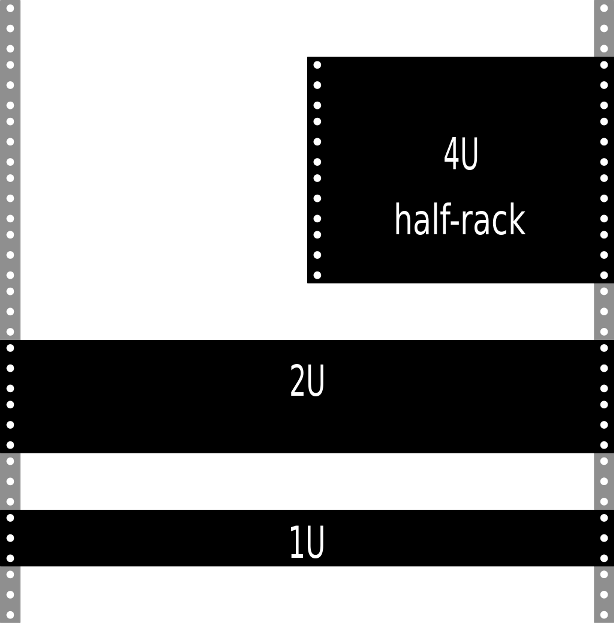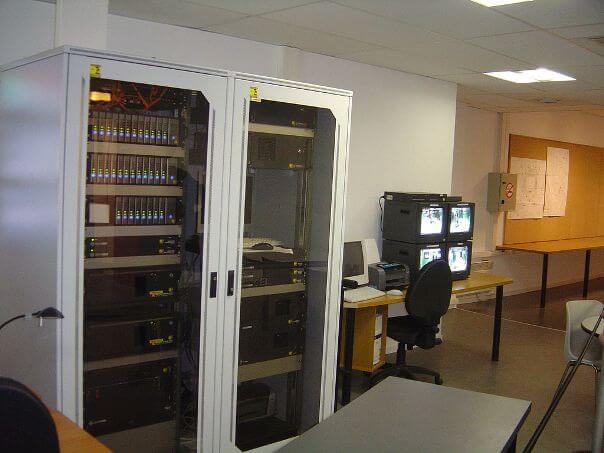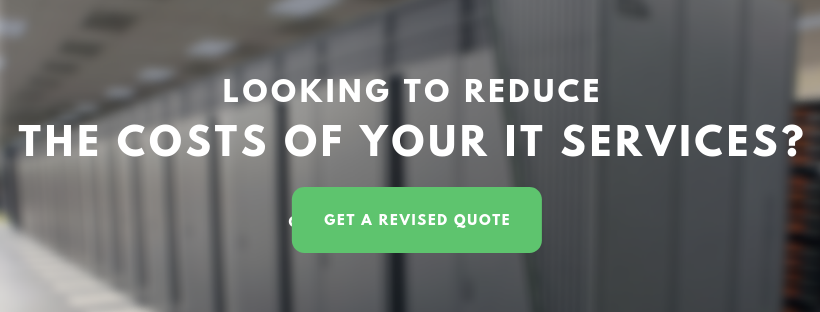If you are confused by all of the terms and choices used in colocation pricing, this post will help. Read on to learn the average price ranges for popular U.S data center cities and what the colocation pricing includes. If you are looking for a data center that will provide optimum protection for your data and work with you to provide the best colocation pricing package possible, contact Digital Service Consultants today.
“By far the best in technical and customer services!” – Trenton
Read more customer reviews

Colocation Pricing
Colocation hosting is quickly becoming more common as businesses find themselves more dependent on their IT equipment and the necessity of having their data secure and available at all times. Many companies don’t want the hassle of constantly maintaining and monitoring their equipment and others don’t have the infrastructure or expertise to do it themselves. This is because your equipment needs to be housed in a reliably regulated, temperature-controlled facility that is secure while at the same time relatively accessible. One of the best alternatives to housing and maintaining your own servers and equipment is to choose colocation hosting, where you rent space for your own servers in a data center that is specifically designed to keep computer equipment operating in an optimal environment. But how much does colocation cost?
1. What Impacts Colocation Pricing?
Your business is unique and your requirements will vary from other businesses and so will your colocation pricing. There are a few main factors that determine the price you will pay for colocation hosting. These include:
Rack Space:
Data centers are equipped with racks that are designed to hold servers and other IT equipment. Rack space refers to the physical amount of space that your server(s) will take up on a rack.
Setup:
You will find that you will need to pay an initial set up fee when you begin colocation hosting. Your equipment will need to be physically moved to the data center and then installed. This setup requires time to perform and may be done by the internal team at the data center or someone in your IT department.
Internet:
You will also require an Internet-based VPN connection, which will be the way that you can access your equipment at the data center from your office. Often you will need an above-average bandwidth to compensate for the distance between the two locations so that your software can operate at high enough speeds. You may also need to purchase dedicated IP addresses as your current Internet Service Provider may not service the data center that you are going to use.
Support:
Colocation is not a managed service, however, some data centers may provide this service to you for an additional fee. You will need to determine who will be responsible for monitoring and maintaining your equipment at the data center. If you are going to be doing that yourself, you will need to make sure that you send someone to the data center on a regular basis. Another option is to pay for an outsourced provider to be responsible for monitoring your equipment on a regular basis.

2. How Does Rack Pricing Work?
Colocation pricing is largely determined by the amount of space your equipment takes up. In order to understand how colocation pricing works, it is helpful to learn some of the terms used when figuring out the cost and what those terms refer to.
1U:
The unit of measurement used when talking about rack space is “U”, which is equal to 1.75 inches in height. A piece of equipment that is 3.5 inches high would take up 2U of rack space.
Full Rack:
A typical full-sized rack cage found in data centers is 42U high and either 19 or 23 inches wide. The individual pieces of equipment held on these racks are usually anywhere from 1U to 4U high. Most rack-mount servers take up 1-2 Us of space.
Half Rack:
The term half rack can be used to refer to:
- A piece of equipment that only takes up half the width of a rack frame – two such pieces of equipment can be placed side by side on a rack.
- A piece of equipment that only takes up half the depth of a rack frame – two such pieces of equipment can be placed on the same rack, one in the front and one at the back.
- A rack enclosure that is half the height of a full rack (22U tall).
Rack space picture – The following diagram shows a rack with sample component sizes including an A/V half-rack unit.

Quarter Rack:
The term quarter rack usually refers to 10U of space on a full sized rack or about one-quarter of the space on the rack.
3. What Is the Price Range for Colocation by City?
Data centers usually charge a monthly fee for their colocation hosting that includes a set amount of bandwidth and IP addresses. Average monthly fees can range anywhere from $45 to $300 per U per month. The following are average price ranges for some of the top data center cities in the United States. These ranges are per U per month.
- Boston: $50 to $200 per U per month
- New York City: $75 to $300 per U per month
- New Jersey: $100 to $300
- Washington DC: $79 to $150 per U per month
- Atlanta: $45 to $100 per U per month
- Miami: $40 to $100 per U per month

4. Is Colocation More Cost Effective than Having a Dedicated Server?
Some businesses choose to use a dedicated server as their IT solution. This means that they lease a dedicated server that isn’t shared with anyone else. Over the long term, paying for a 1U server colocation is actually cheaper. A mid-range dedicated server provider usually costs about $200 per month whereas a 1U colocation hosting service will cost about $50 per month. When you spread that cost over an entire year, you will save about $1,800 a year with colocation.

DSC – For the Most Competitive Colocation Pricing in Atlanta
If you are looking for the best colocation pricing in Atlanta, Digital Service Consultants can help. At DSC we offer fast, safe, secure, and reliable managed and colocation services at incredibly competitive rates. We know how to help you get the most out of your system and we offer 24/7/365 technical support so you will always be up and running. DSC has been a trusted name in the IT industry in Atlanta for more than 30 years. We also provide a full range of internet- related services including cloud backup, system monitoring, software hosting, dedicated email, website development and implementation, web hosting, e-commerce, security, and a variety of related products and services. We also provide network support for Linus, Microsoft server and workstation platforms, Fortinet firewalls, and Cisco Systems. Contact us today for all of your internet-related requirements.



